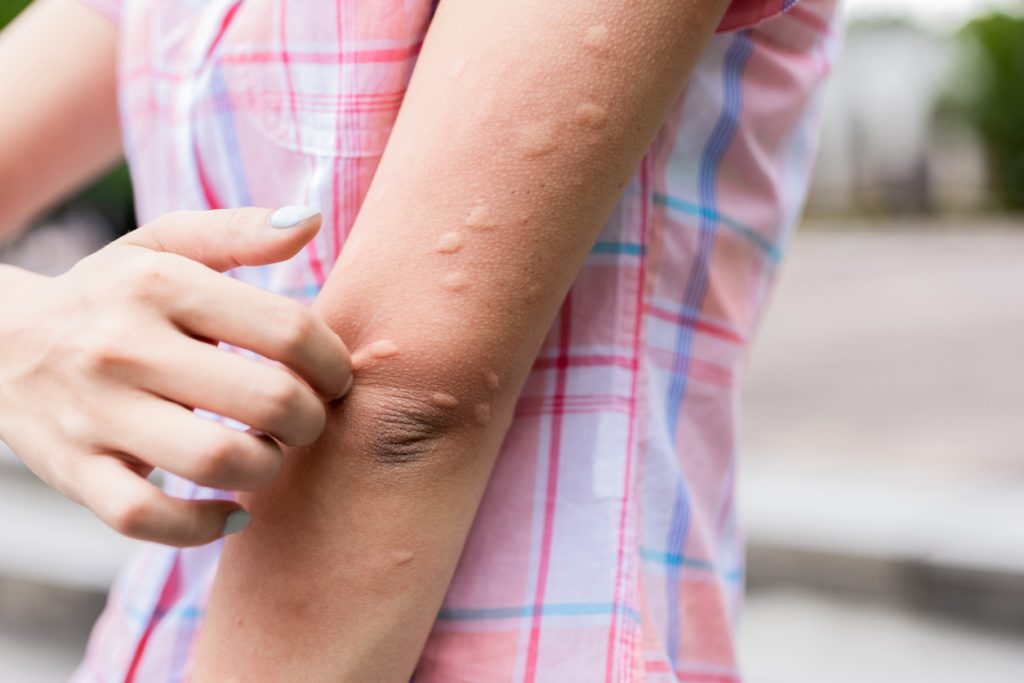Chronic spontaneous urticaria (CSU) is getting a lot of attention these days as researchers close in on the role mast cells play in causing hives.
Top-line results from a phase 2 trial show that barzolvolimab (anti-KIT monoclonal antibody) improves symptoms in patients with antihistamine-refractory CSU.
“Barzolvolimab successfully decreased disease activity in patients with moderate to severe chronic spontaneous urticaria refractory to antihistamines, including patients with biologic-refractory disease,” says study author Marcus Maurer, MD, Professor of Dermatology and Allergy and the Executive Director of the Institute of Allergology at the Charité University Hospital in Berlin, in an interview with TDD. “The results were highly statistically significant and clinically meaningful.”
The data also showed that a high percentage of patients had complete control of their disease after barzolvolimab treatment.
“There is a significant medical need here with very limited approved treatment options available. Patients with CSU suffer greatly both physically and psychologically. This disease can be long-lasting and devastating as it basically impacts every aspect of life—sleep, interpersonal relationships, performance at work and school, hobbies, traveling, sports—all of these patients have stories to tell where their disease dominated their life.”
Marcus Maurer, MD
Barzolvolimab has shown such promising results because it addresses the root driver of the disease—mast cells, he says.
“Barzolvolimab is a humanized monoclonal antibody that binds the receptor tyrosine kinase KIT with high specificity and potently inhibits its activity,” explains Dr. Maurer. “KIT signaling controls the differentiation, tissue recruitment, survival and activity of mast cells so by blocking KIT, barzolvolimab inhibits and then depletes skin mast cells.”
In the ongoing, double-blind, placebo-controlled trial, 208 patients received barzolvolimab subcutaneously at 75mg every 4 weeks, 150mg every 4 weeks, 300mg every 8 weeks or placebo during a 16-week placebo-controlled treatment phase followed by 36-weeks of active treatment, and 24-weeks of follow-up.
The primary endpoint is the mean change from baseline in urticaria activity score 7 (UAS7) at week 12. Secondary endpoints include change from baseline for itch and hives severity scores, and safety.
Barzolvolimab at 150mg Q4W and 300mg Q8W demonstrated clinically meaningful and statistically significant improvement in UAS7 compared with placebo at 12 weeks in patients with antihistamine refractory CSU, the study showed.
Symptom improvement was rapid. Most drug-related toxicities were low grade with no drug-related serious adverse events.
Barzolvolimab is expected to enter Phase 3 studies in CSU this summer.
“There is a significant medical need here with very limited approved treatment options available,” he says. “Patients with CSU suffer greatly both physically and psychologically. This disease can be long-lasting and devastating as it basically impacts every aspect of life—sleep, interpersonal relationships, performance at work and school, hobbies, traveling, sports—all of these patients have stories to tell where their disease dominated their life.”
The research will be presented at the annual meeting of the American Academy of Allergy, Asthma & Immunology, which takes place in Washington, DC from Feb. 23-26,2024.


